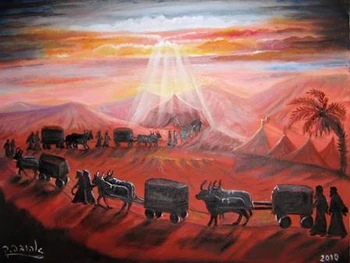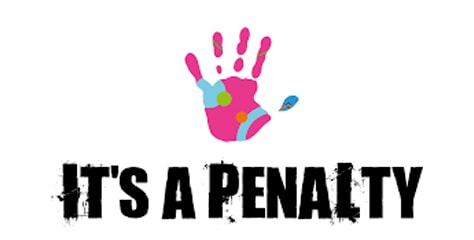Beitza 24a-b
1- We learned an interesting piece of Gemara. After mentioning R’ Shimon ben Gamliel’s opinion in regard to צידה , the trapping of animal on Yom Tov, R’ Yosef rules in accordance with R’ Shimon ben Gamliel.

Abaye questioned the necessity for the ruling when it is not clear that the Tanna Kamma disputes this point.
R’ Yosef responds that ‘what is the difference if there is a machlokes or not when I am telling you that regardless the Halacha is like Reb Shimon?’
Abaya responds by saying גמרא גמור זמורתא תהא – ‘do you want me to learn Gemara like a song?’. Meaning that unlike singing that requires no concentration, learning Gemara entails thinking and comprehension.

2- In regard to the expression of Abaya we discussed the famous story with Dovid Hamelech:
The Gemara in Sota 35a relates :
דרש רבא מפני מה נענש דוד מפני שקרא לדברי תורה זמירות שנאמר (תהלים קיט, נד) “זמירות היו לי חוקיך בבית מגורי
Dovid expressed in chapter 119 of Tehilim ‘Songs were to me Your Statutes (Torah)… ’. G-D was not pleased with Dovid’s calling Torah learning ‘songs’. It seems to be belittling the seriousness of Torah. He tells Dovid that he will be punished by forgetting a simple Posuk in Chumash.

When did that happen?
At the very beginning of his reign David moved the ארון from קרית יערים . It was placed on a wagon. And made it way to Yerusholayim amid great rejoicing. On the way to kiryat Ye’arim, Uzzah, one of the drivers of the cart on which the ארון was carried, put out his hand to steady the Ark, and was punished for touching the ארון.
ו) וַיָּבֹאוּ עַד גֹּרֶן נָכוֹן וַיִּשְׁלַח עֻזָּא אֶל אֲרוֹן הָאֱלֹהִים וַיֹּאחֶז בּוֹ כִּי שָׁמְטוּ הַבָּקָר. (ז) וַיִּחַר אַף ה’ בְּעֻזָּה וַיַּכֵּהוּ שָׁם הָאֱלֹהִים עַל הַשַּׁל וַיָּמָת שָׁם עִם אֲרוֹן הָאֱלֹהִים. (ח) וַיִּחַר לְדָוִד עַל אֲשֶׁר פָּרַץ ה’ פֶּרֶץ בְּעֻזָּה וַיִּקְרָא לַמָּקוֹם הַהוּא פֶּרֶץ עֻזָּה עַד הַיּוֹם הַזֶּה.

David had momentarily forgotten the stipulation of the Torah, “On the shoulder shall they carry it.”
Commenting on this episode, our Sages teach that David’s forgetfulness came as a punishment for his having referred to the laws of the Torah as “songs” Tehilim 119: 54 “Your statutes were songs for me in my place of terror.”
3- The question is how did Dovid forget a פסוק?
Torah can be explained in four ways: פשט רמז דרוש וסוד. – פרד”ס
So far we have found an explanation in סוד and דרוש.
סוד-
The Alter Rebbe explains this story In Tanya and elsewhere.
Dovid’s happiness with learning Torah was a result of his being cognizant of the fact that as is known, all the worlds – ,עליונים ותחתונים , are dependent on the meticulous performance of a single mitzvah.
He therefore labeled Torah learning as a song – expressing happiness because he was overjoyed when he contemplated how the entire world is of no account, relative to one minor specific detail of the Torah.

But there is a more important aspect of Torah that supersedes all the above. And that is that Torah is G-D’s wisdom to whom all these worlds are considered nothing.
See below for the words in Tanya.
4- The above is an explanation based on Chassidus. But what is the simple ‘Peshat’ of Dovid ‘forgetting’ a Posuk?
דרוש
We mentioned the interesting explanation of Reb Yonason Eibishutz.
Briefly:
The Radak writes that Dovid erred in thinking that the commandment to carry the ארון by hand was only applicable to the time in the desert. It did not apply in the generations that followed that particular time.

Why? Reb Yonason say that Dovid’s logic went as follows: After the Nesiim donated the 6 wagons at the Chanukas Hamizbeach, Moshe Rabeinu A”H gave them to the tribes of Gershon and Merori for they were tasked with hauling the heavy pieces of the Mishkan.
Now in order to avoid jealousy between the Nesiim, since not all the parts carried by Gershon and Merori were of equal ‘Kedusha’, the wagons were switched from time to time. Thus all the Nesiim’s gifts were alternately shared in usage of all the wagons.
The ארון, on the other hand, was carried on the shoulders. For once it would be placed on a wagon it would need to remain that way (for whatever reason) – Thus, placing the ארון on a wagon would cause jealousy towards the 2 Nesiim that donated that particular wagon!

However, once these wagons went out of service this commandment was made obsolete and the ארון would indeed be allowed to be carried on a wagon.
Dovid’s error was his reasoning. For the true reason the ארון was not to be placed on a wagon had nothing to do with a potential for jealousy.
The Medrash says that the real reason the ארון needed to be carried ‘on the shoulders’ was to signify that Torah study needs to be a burden, a yoke on the person. – עול של תורה . One needs to ‘horove’, feel an obligation to toil, concentrate and spend much time in learning Torah.
This lesson of ‘iyun’ of Torah, being eternal, never changes and as a result the ארון always needs to be shoulder-carried.

Dovid’s thinking was that to achieve in learning on does not need such diligence. Hence he called the study of Torah ‘songs’. As a result he erred in the reason for the commandment of carrying the ארון.
5- We mentioned the most interesting take of the תפארת ישראל of the topic of ‘Singing while learning’. Here.
We find many places in Sha”s where a Mishna is stated and the Gemara comes along and questions the Mishna. The Gemara then says “חסורי מחסרא”, meaning that there are some words missing in the text of the Mishna.
Why then, the תפארת ישראל asks, was the Mishna not edited with the correct text?
He answers that the Mishnayos, prior to them being written, were studied and transmitted verbally. [At the time writing the Mishna was prohibited]. In order to assist in the memorization, they were sung with a particular song. The words of every Mishna fit to a particular tune thereby easing the memorization.
If we were to add the missing words it would cause chaos and the memorization process would be diminished!
This idea is truly unique and original.
———————-
Tanya- Kuntres Achron – #6.
As is known, all the worlds, the exalted and the lowly, are dependent on the meticulous performance of a single mitzvah.
For example, if an altar offering is valid then a Supernal Union in the Sefirot is effected, and all the worlds are elevated to receive their life-force and spiritual sustenance.However, if [the celebrant] altered the precise requirements of the law — if, for example, he received the blood of the offering with his left hand, or in an invalid vessel, or if there was a separation
then all the elevations of the worlds that would have been accomplished are nullified, as is
the life-force and sustenance that they would have received from the Source of Life, the Ein Sof, blessed be He.
So, too, through the use of valid tefillin there is revealed the Supernal Intellect of Zu”n, Za and Malchut of Atzilut, the source of life for all the worlds.
Yet through [the omission of] one required detail they are invalidated, and the Intellect
departs.
In the case of a detailed requirement of a prohibitory commandment, transgression brings about (G‑d forbid) a descent in all the worlds.
This was the delight of King David, may he rest in peace, as he sang to gladden his heart in his Torah study during his time of anguish.
He was overjoyed when he contemplated how the entire world is of no account, relative to one minor specific detail of the Torah. So why was he punished? The Alter rebbe continues:
However, for extolling the Torah with this quality, saying, “[Your statutes] were songs for me,” he was punished. G‑d reproved him: “You call them songs?!”
For indeed, this quality [of the Torah], that all the worlds are nothingness compared to one detail of it,
is [but] of the externality, of the profound Supernal Thought.
Relative to the Infinite One, all the worlds are as absolute naught, sheer nothingness, nonexistent.
For “You were [the same] before the world was created, [You are the same since the world has been created].”
Being of absolutely no account relative to G‑d, all the worlds effect no change in Him.
Hence, the internal aspect of the Torah too (which is wholly united with G‑d) is not at all to be lauded as being the animating force of all the worlds, for relative to the internal aspect of the Torah they are reckoned as nothingness itself.















